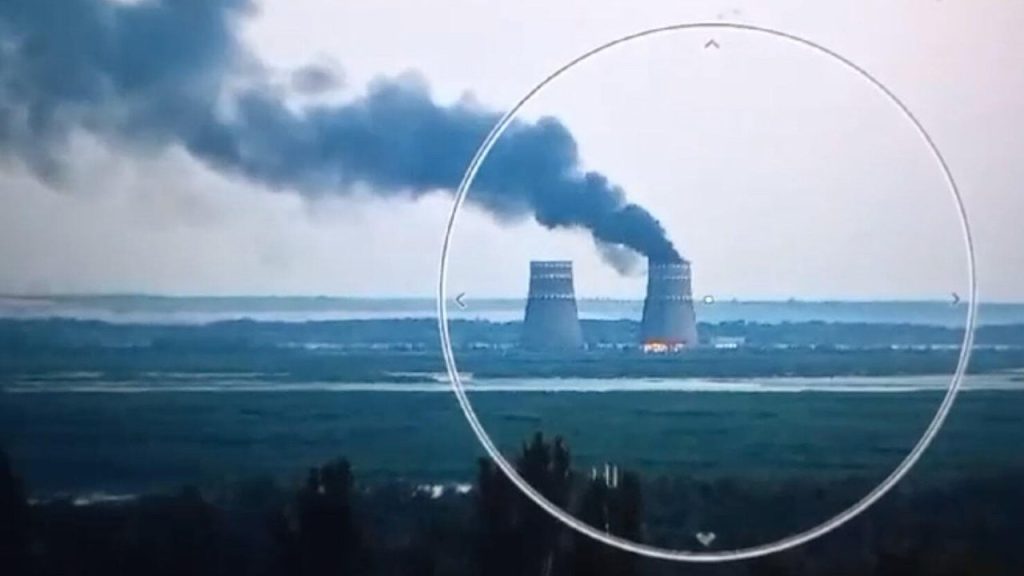The fire that broke out at Ukraine’s Zaporizhzhia nuclear power plant has been reported as extinguished by Russian state media, although both Moscow and Kyiv are still blaming each other for the incident. The International Atomic Energy Agency (IAEA) has been informed of an alleged drone attack on one of the plant’s cooling towers, with Moscow accusing Ukrainian forces of carrying out the attack. Ukrainian President Volodymyr Zelenskyy has accused Russian forces of setting fire to the plant and using its security as a means of blackmail against Ukraine and Europe. The IAEA has confirmed that there was no impact on nuclear safety following the fire and radiation levels remained normal.
Russian forces have illegally occupied the Zaporizhzhia plant for over two years. Dmitry Rogozin, a former head of the Russian space agency and now a representative of the Kremlin in Zaporizhzhia, was reportedly at the plant just hours before the alleged drone attack on the cooling tower. It is unclear why Rogozin was at the plant, as he has shown a particular interest in the use of UAVs and unmanned ground vehicles in Ukraine. The IAEA has condemned the attacks on the plant, stating that they pose a threat to nuclear safety and increase the risk of a nuclear accident. The agency has called for the attacks to stop immediately.
President Zelenskyy has called for the world and the IAEA to hold Russia accountable for the incident at the Zaporizhzhia plant. He has emphasized that only Ukrainian control over the plant can guarantee a return to normalcy and complete safety. The IAEA has requested immediate access to the cooling tower to investigate the extent and possible cause of the event, although it is unclear if access was granted. The ongoing conflict between Russia and Ukraine, as well as the occupation of the Zaporizhzhia plant, have heightened concerns over a potential nuclear meltdown.
The IAEA confirmed witnessing thick dark smoke and hearing multiple explosions near the plant, but reiterated that there was no impact on nuclear safety and that radiation levels remained within normal limits. Despite this, the continuous attacks in the area pose a significant threat to the plant and nuclear safety. The IAEA Director-General has called for an immediate halt to the attacks, stressing the importance of preventing any further risks to the plant’s operations. The international community is closely monitoring the situation at the Zaporizhzhia plant and the escalating tensions between Russia and Ukraine.
The accusations and counter-accusations between Moscow and Kyiv over the incident at the Zaporizhzhia plant have further strained relations between the two countries. The ongoing conflict in Ukraine, along with the occupation of the plant by Russian forces, has raised concerns about the safety and security of nuclear facilities in the region. The IAEA’s efforts to investigate the incident and ensure nuclear safety at the plant are crucial in preventing any further escalation of the situation. The international community must work together to address the underlying issues that have led to the current crisis and find a peaceful resolution to the conflict between Russia and Ukraine.


